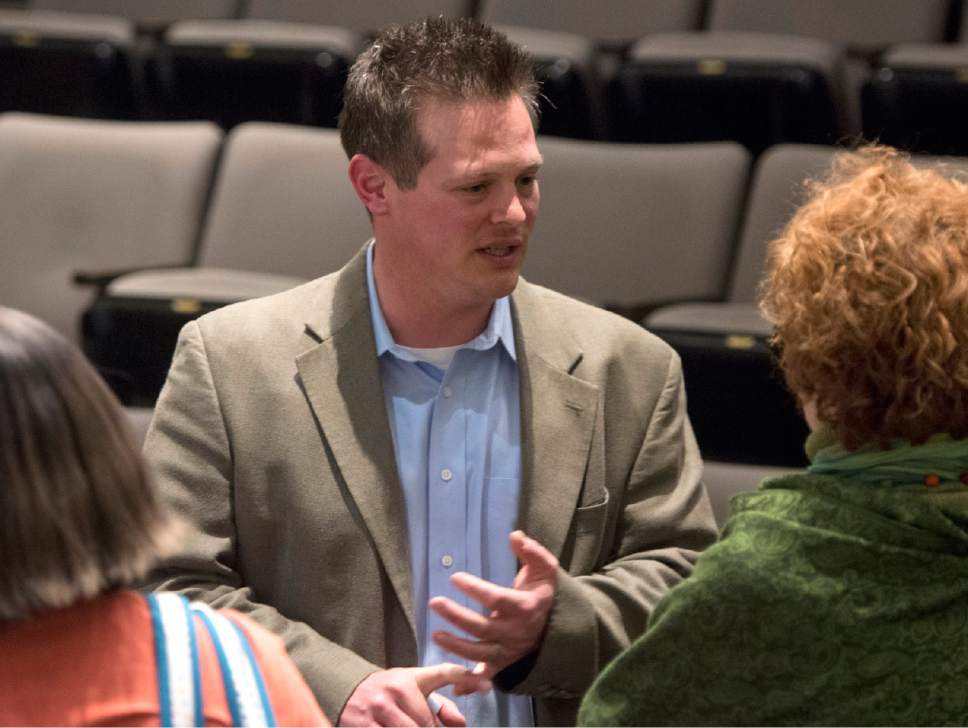This is an archived article that was published on sltrib.com in 2017, and information in the article may be outdated. It is provided only for personal research purposes and may not be reprinted.
In winter of 2014, I taught an investigative reporting course at the BYU-Salt Lake campus. One class late in the semester taught the students about whistleblowers.
As that day's class was ending, I asked the students what institution in Utah might be susceptible to a whistleblower or someone leaking information? After a few seconds of silence, one student suggested, "The church?"
That's The Church of Jesus Christ of Latter-Day Saints, of course. It took 2 1/2 years, but when videos of LDS general authorities' meetings were posted online this most-recent October, the student's answer was officially correct.
Neither the student nor I were displaying any clairvoyance. I also told the students I wasn't rooting for anyone to leak information about the church. But there were signs of vulnerability.
Whistleblowers — I'll use the terms broadly here. One person's whistleblower is another person's crybaby or thief. — and what makes them is studied in journalism and other disciplines. Before I taught the unit to BYU-Salt Lake students, I attended training sessions at multiple conferences explaining how whistleblowers are created and what happens after they divulge information.
The LDS Church shares some characteristics of other institutions whose secrets have been exposed, particularly the Department of Defense and the National Security Agency. Fred Karger agrees. He's the man who on Tuesday held a press conference to show off television ads running in Utah asking former and current Mormons to share stories and documents that will help his forthcoming complaint to the IRS seeking to overturn the LDS Church's tax-exempt status. After the other reporters left, Karger and I spoke about three characteristics we both see.
The first characteristic is opaqueness. Yes, the LDS Church is within its rights to not disclose information about its finances, the salaries it pays or how it makes decisions about policy. But the more secrets you hold, the more secrets are at risk of being exposed.
The next characteristic is a failure to live up to a whistleblower's expectations of the institution. Expectations can be subjective, and whistleblowers' expectations tend to be different than the institution they are a part of.
University of Maryland Professor C. Fred Alford, who studies political theory and political psychology and is an authority on whistleblowers, describes whistleblowers as learning later than others how people do one thing and say another.
"They're naive in a certain sense, and then when they come to realize that people are lying, cheating, stealing, whatever, they're shocked," Alford told Mother Jones in 2013.
Anyone who knows anything about the LDS Church knows that, rightfully so or not, it has critics of its behavior. Karger is hoping to capitalize on the people upset that the LDS Church teaches families are forever but is denying baptism to children of gay and lesbian parents.
The third characteristic is the failure or refusal of the institution to satisfy the whistleblower's complaint. Almost no whistleblowers run right to the press. Most try some administrative remedy first. Edward Snowden has said he raised concerns about the NSA's surveillance programs before he provided documents to journalists and those concerns were ignored.
So it shouldn't be a surprise that records published last week by Mormon Leaks included pay stubs purporting to show what LDS Church General Authorities are given. Lots of people have said for years they wish the church would be more transparent about its finances. The church has not been.
Still, anyone thinking of disclosing sensitive information should know a few things.
Few whistleblower cases arrest the behavior that spurred the person to act. The Pentagon Papers wasn't what ended America's involvement in the Vietnam War. Chelsea Manning's leak isn't what made policymakers rethink the war in Iraq. Snowden ignited a conversation about surveillance, but the NSA is still gathering information.
Alford's research has shown whistleblowers are as likely to be retaliated against in some fashion as they are hailed. That's another aspect of whistleblowers taught to journalists — be prepared to deal with someone whose life has come apart as a result of their whistleblowing.
Nate Carlisle is a reporter at The Salt Lake Tribune. Look up his public key and send him an encrypted email at ncarlisle@sltrib.com.





